Protect Kids Online Act - Safe Browsers
Browsers quietly collect vast amounts of data, leaving children exposed to tracking and targeted ads. Every click, search, or visit online can be tracked, stored, and used to profile your kids. Kids don't think about online privacy. They browse and explore with curiosity, unaware that their actions can be used against them.
To protect kids online act, kid-safe browsers are so important. They don't just block ads or filter content—they create a safe internet space where privacy comes first. I've tested the most popular kid-safe browsers for their privacy protection and ethical standards. I'll share my top 8 favorite ones here.
Top Safe Browsers for Protecting Kids Online
- SPIN Safe Browser - Blocks explicit content, ad trackers, cookies, and fingerprinting; no browsing data stored locally or in the cloud.
- AirDroid Parental Control - Real-time alerts for danger online acts, advanced website filtering, GDPR-compliant, stealth mode.
- Mobicip - Real-time content filtering, zero personal data collection under 13, social media monitoring, COPPA-compliant.
- Kiddle - No personal data collection, 24-hour search log deletion, kid-friendly content categories.
- Qustodio - Extensive web filtering and activity monitoring, but potential privacy concerns due to data processing and legal jurisdiction.
- Safe Search Kids - No PII collection, automatic cookie management, SafeSearch for Google, minimal data collection.
- Microsoft Edge - Cookie and data deletion, tracker blocking, password-protected Kids Mode with SafeSearch on Bing.
- Google Safe Search - Filters explicit content, scans downloads, categorizes search results.
1SPIN Safe Browser
SPIN stands out in privacy protection because it's quick to set up, has an extremely user-friendly UI, and just works! I love how it automatically blocked explicit content, including inappropriate images, videos, and websites out of the box—no setup or configuration required.
When talking about protecting kids online act, SPIN isn't just useful for blocking content, it actively blocks ad trackers, cookies, and fingerprinting attempts while browsing, so advertisers can't collect data to target kids with personalized ads.
The best part? It never stores browsing data locally or on the cloud, meaning your kids' online activity is kept private.
Here are some more of SPIN's features that impressed me:
- Built-in filters for 20+ content categories
- Automatic blocking of VPNs and proxy sites to prevent filter bypassing
- Enforced Safe Search across Google, Bing, DuckDuckGo, and Ecosia
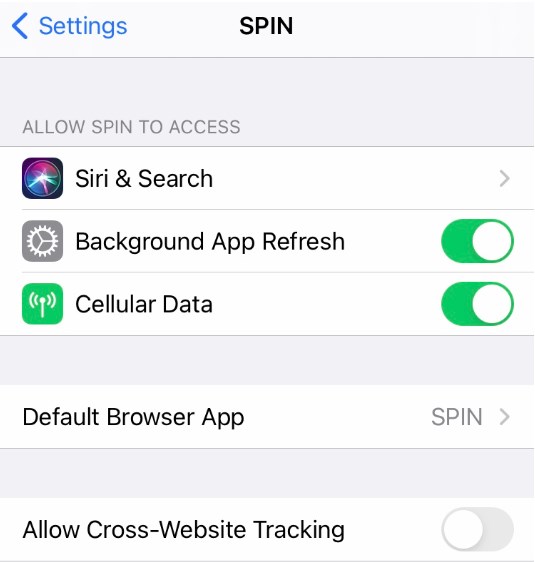
I found that the free version was enough to protect kids online. However, the SPIN+ subscription adds valuable privacy controls like custom domain blocking/allowing, passcode protection for settings, and iCloud integration.
One aspect I found lacking in my testing is that SPIN relies on general content filtering rather than advanced privacy-specific features. Parents may need to use SPIN alongside other parental control tools for robust privacy protection.
Bottom Line: SPIN Safe Browser is best for families seeking a simple, no-setup solution for blocking inappropriate content. The free version offers substantial protection, though the premium features add worthwhile customization options.
2AirDroid Parental Control
While standalone browsers like SPIN offer some privacy features, they aren't a complete solution for protecting children online. For parents seeking robust website filtering and comprehensive content control, AirDroid Parental Control is a much stronger option.
Key features for web and content protection:
- Advanced website filtering: Block inappropriate websites by URL or categories such as adult content, drugs, violence, gambling, and more.

- URL blacklist & whitelist management: Customize exactly which sites your child can or cannot visit.

- Content detection: Scan the device for explicit or adult images saved on your child's device.

- Real-time alerts: Receive notifications if your child attempts to access blocked websites or encounters harmful content.
Additional features include stealth mode, so the app runs discreetly, notification sync, screen mirroring, and remote camera access — all designed to give parents insight into online activity while maintaining privacy.
Bottom Line: AirDroid Parental Control offers a complete solution for online safety, combining category-based website filtering, content detection, and real-time monitoring, all while respecting privacy standards like GDPR. It's ideal for parents who want peace of mind and effective protection for their children's digital world.
3Mobicip
Mobicip is a comprehensive solution for protecting kids online act that employs industry-standard security measures, including encryption, firewalls, and SSL (Secure Sockets Layer), to safeguard personal information.
Mobicip says they have a zero personal data collection policy from children under 13 without verified parental consent. One of my favorite parts about the browser is its intelligent filtering system, which excels at protecting children's data in real-time. It scans website content, titles, and descriptions before allowing access.
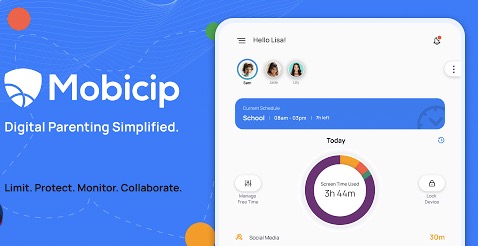
Unlike other tools that store browsing history indefinitely, Mobicip allows parents to monitor activity without retaining sensitive data long-term. This means you get the oversight you need without compromising your child's privacy.
A key feature I found valuable is the social media monitoring. It not only flags potentially harmful interactions but also prevents oversharing of personal details—a crucial step in protecting kids from online predators.
I also found that the automatic Safe Search enforcement worked accurately on major search engines like Google and Bing. It eliminates the risk of inappropriate search results slipping through, even on platforms that kids frequently use.
Bottom Line: Mobicip is perfect for parents who want strong privacy controls combined with real-time content filtering and social media oversight. I particularly liked its detailed activity monitoring features while maintaining COPPA compliance.
4Kiddle(Child-Safe Search Engine)
While Kiddle is not specifically a browser, it's a Child-Safe Search Engine for proctecting kid online act. I wanted to include it in this list because of it's unique approach to privacy. It focuses on search result filtering rather than traditional browser controls.
Unlike standard search engines that often collect user data, Kiddle does not retain any personally identifiable information (PII). It even goes a step further and deletes its search logs every 24 hours—minimizing the risk of data breaches and unauthorized access to children's search histories.

As a visual search engine built on Google's Safe Search technology, it implements multiple layers of kids' online act protection specifically designed for children. Kiddle categorized results in three tiers:
- 1. Hand-picked content specifically written for children
- 2. Safe, trusted sites with kid-appropriate content
- 3. Family-friendly websites with more advanced content
I'd like to point out an important thing here. While Kiddle doesn't collect personal data, searches still pass through Google's servers. Users logged into Google accounts may have their search activity tracked through cookies, despite Kiddle's privacy measures.
Bottom Line: Kiddle is an excellent choice for parents seeking a child-friendly search engine that prioritizes privacy and safety. It's a trustworthy platform that commits to not collecting personal data and regularly deleting your child's search logs.
5Qustodio
Qustodio is an extremely popular parental control solution, however, it comes with several concerns that make it a mixed bag. During extensive testing, I found both strengths and notable privacy vulnerabilities.
Let's discuss the positives first. Based on my experiences with various kid-safe browsers, Qustodio offers one of the most comprehensive web and app filtering and detailed activity monitoring capabilities.
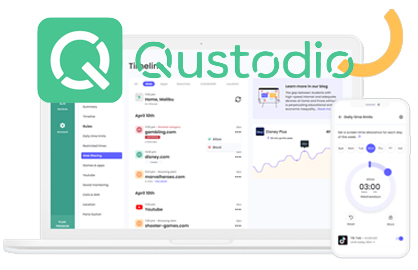
However, the platform processes two types of personal data:
- Account and contact information
- User data from monitored devices
This is where my main concerns begin. While Qustodio claims not to sell data to third parties, its governance under Spanish law (part of 14 Eyes alliance) raises additional privacy considerations.
In fact, several serious privacy vulnerabilities with Qustodio have been identified over the years, including:
- Extraction of private keys from encrypted certificate stores
- Session authentication cookies leaked via HTTP
- Potential exposure of Facebook credentials during configuration
Some users have also reported potential workarounds, such as the use of VPNs, that can bypass Qustodio's restrictions. This limitation suggests that even with all these powerful features, kids can easily circumvent Qustodio's protection and privacy protections.
Bottom Line: While Qustodio offers comprehensive monitoring capabilities, its security vulnerabilities make it difficult to recommend for privacy-conscious families. It's best suited for parents who prioritize extensive monitoring features over strict privacy protection, though they should be aware of the potential security risks.
6Safe Search Kids
Safe Search Kids is a child-friendly search engine similar to Kiddle. It uses Google's SafeSearch technology combined with additional filtering layers to ensure that kids don't come across explicit search results.
To protect kids online act, the platform offers very similar privacy management features as other kid-safe search engines like:
- Zero collection of PII from kids under 13
- No user registration or account creation required
- Automatic cookie management with minimal data collection
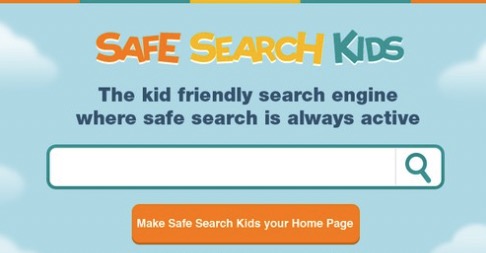
Thanks to Google SafeSearch, there's no targeted advertising or data collection for marketing purposes. This is a relief for parents as your children's search activities will remain confidential and free from tracking.
Safe Search Kids has the same issue as Kiddle—Since the service uses Google's infrastructure, some search data still passes through Google's servers. However, the platform implements additional privacy measures to prevent tracking and data collection beyond basic usage statistics.
Bottom Line: Safe Search Kids is a simple kid-friendly search engine that can be great for parents and educators who want a privacy-focused solution. However, it's not a full-fledged web browser so you'll need separate solutions for that.
7Microsoft Edge(Kids Mode)
My next recommendation is for families who don't want to switch to a different app or platform. If you're already using Microsoft Edge, you can simply use its built-in kids mode as an instant and effective solution.
Kids Mode is seamlessly integrated into the browser's core functionality, and I didn't even need to sign in to the browser to activate it.
Once turned on, I was asked to set an appropriate age for browsing (5-8 or 9-12 years). The browser offers various useful privacy solutions, but the ones I appreciated the most are:
- Automatic cookie and site data deletion when sessions end
- No data collection for news feed personalization or Microsoft services
- Windows Defender SmartScreen integration for malware protection

Once you turn on Kids Mode, Microsoft Edge blocks the majority of trackers and minimizes personalized ads. My favorite part is that the browser requires your authentication to exit Kids Mode, so children can't access the broader internet without your permission.
Additionally, Kids Mode enforces strict SafeSearch settings on Bing, filtering out inappropriate content from search results and providing a more secure browsing environment for young children.
Bottom Line: Microsoft Edge Kids Mode is perfect for families who need quick, secure browsing sessions on shared devices. Its password-protected environment and strict privacy controls make it particularly effective for scenarios where you need immediate protection without a complex setup.
8Google Safe Search (Used with Kid-Friendly Browser Extensions)
In addition to all the options for kids online act protcetion discussed above, there are dozens of Chrome extensions that integrate Google Safe Search to provide a seamless and protected search experience.
Extensions like Kids Safe Search Engine integrate seamlessly with Chrome, replacing the default search engine with one tailored for children. This setup offers serval safety benefits like:
- Automatic filtering of explicit content including adult material and graphic violence
- Real-time background scanning of suspicious downloads and websites
- Enhanced protection mode that provides security against known and potential new threats
- Automatic enabling for users under 18
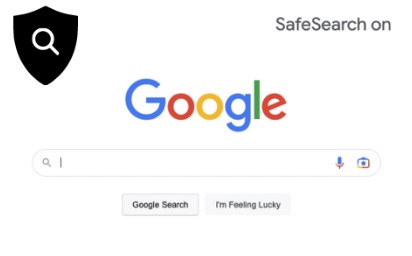
Moreover, these extensions often categorize search results into topics like Education, Games, and Creativity, making it easier for children to find relevant information safely. This categorization helps create a balance of privacy and productive online activities.
I recommend checking the reviews and ratings of the extension before installing it to protect kids online act. A good kid-focused extension maintains strong privacy measures, such as zero personal information collection, encryption of data, and automatic threat detecting and blocking.
Bottom Line: Kid-friendly browser extensions that utilize Google SafeSearch can be a great option to ensure children's safety even when using a regular browser like Chrome. These solutions enhance the online experience by filtering explicit content while guiding kids toward educational content.
Quick Comparison Table
For easy comparison, we have summarized the key features of the recommended child-safe browsers above. The following table shows how each browser performs in terms of data collection, tracking prevention, ad blocking, content filtering, COPPA compliance, and other unique features:
Browser | No Data Collection | Tracking Prevention | Ad-Blocking | Content Filtering | COPPA Compliance | Other Unique Features |
| SPIN Safe Browser | ✓ | Excellent | ✗ | Excellent | ✓ | Automatically block inappropriate content |
| AirDroid Parental Control | ✓ | Excellent | ✓ | Excellent | ✓ | Stealth mode, Real-time alerts |
| Mobicip | ✗ | Excellent | ✗ | General | ✓ | / |
| Kiddle | ✓ | Basic | ✗ | General | ✓ | Automatically Block inappropriate content |
| Qustodio | ✗ | Excellent | ✗ | Excellent | ✓ | Panic button feature for emergencies |
| Safe Search Kids | ✓ | Excellent | ✓ | Excellent | ✓ | Enhanced filtering |
| Microsoft Edge Kids Mode | ✗ | Excellen | ✓ | Excellent | ✓ | Password required; curated kid-friendly content |
| Google Safe Search with Extensions | ✗ | Basic | ✗ | Genral | ✓ | Safe Browsing integrated into Chrome |
Overall, SPIN Safe Browser and AirDroid Parental Control perform well in privacy protection and comprehensive features, suitable for parents who need robust monitoring and protection.
Mobicip and Kiddle excel in content filtering and privacy protection, making them ideal for privacy-conscious parents.
Although Qustodio offers powerful features, it has identified privacy loopholes and is best suited for parents seeking higher monitoring capabilities.
Safe Search Kids and Microsoft Edge Kids Mode provide simple yet effective privacy protection solutions, perfect for quick setup and ease of use.
Finally, Google Safe Search combined with browser extensions offers flexible privacy protection options for parents looking for customizable solutions.
Types of Data Collected By Common Browsers
Most people don't realize how much information standard browsers collect. But when it comes to kids, the stakes are even higher. Every time your child opens a browser, it automatically collects:
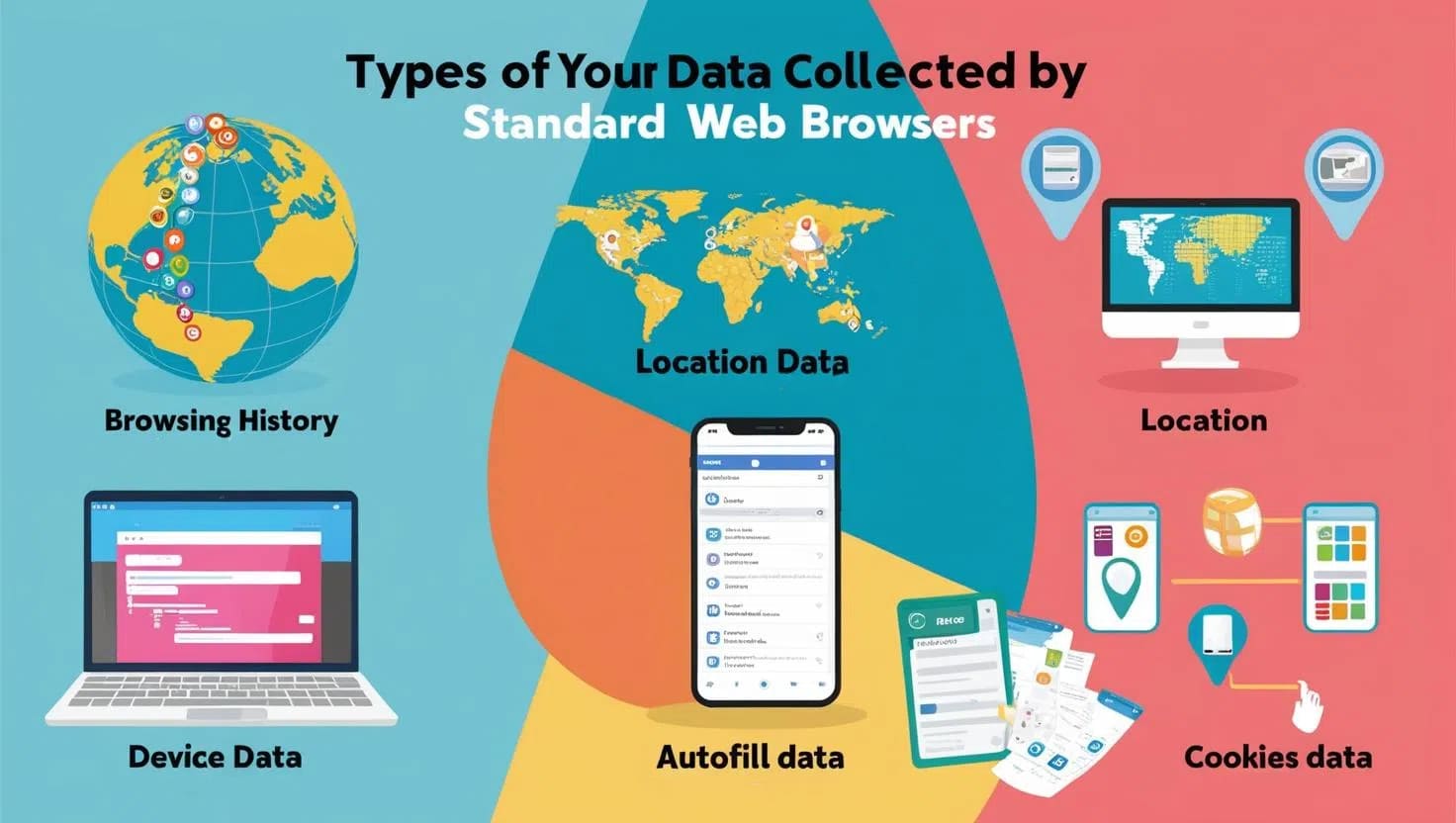
- Browsing history: Websites visited, search queries, videos watched
- Location data: GPS coordinates or general location from IP addresses
- Device information: Operating system, device type, screen resolution, battery level
- Autofill data: Names, addresses, passwords (if saved)
- Cookies and trackers: Cookies, cache files, and other small files that track online activity
Data collected by regular browsers can be used to build detailed fake profiles—something no parent wants for their child.
What's even worse? Even big companies are susceptible to data breaches or privacy violations.
In 2019, YouTube faced a $170M fine for collecting data on kids under 13 to serve targeted ads—a clear violation of privacy laws like COPPA. A similar case occurred in 2024 when Microsoft was caught in a controversy for tracking student behavior and collecting browser data for advertising purposes through its Microsoft 365 Education platform.
Types of Data Collected By Kid-safe Browsers
Kid-safe browsers are designed with strict privacy rules to comply with data regulation and privacy laws like the Children's Online Privacy Protection Rule (COPPA) in the U.S. and the General Data Protection Regulation (GDPR) in the EU.
These laws exist to protect children's personal information and protect kids online act.
COPPA, for example, requires websites and services aimed at children under 13 to obtain parental consent before collecting personal data. GDPR goes further, emphasizing data minimization and transparency.
Kid-safe browsers respect these regulations by limiting the data they collect. Typically, they only gather essential information, such as:
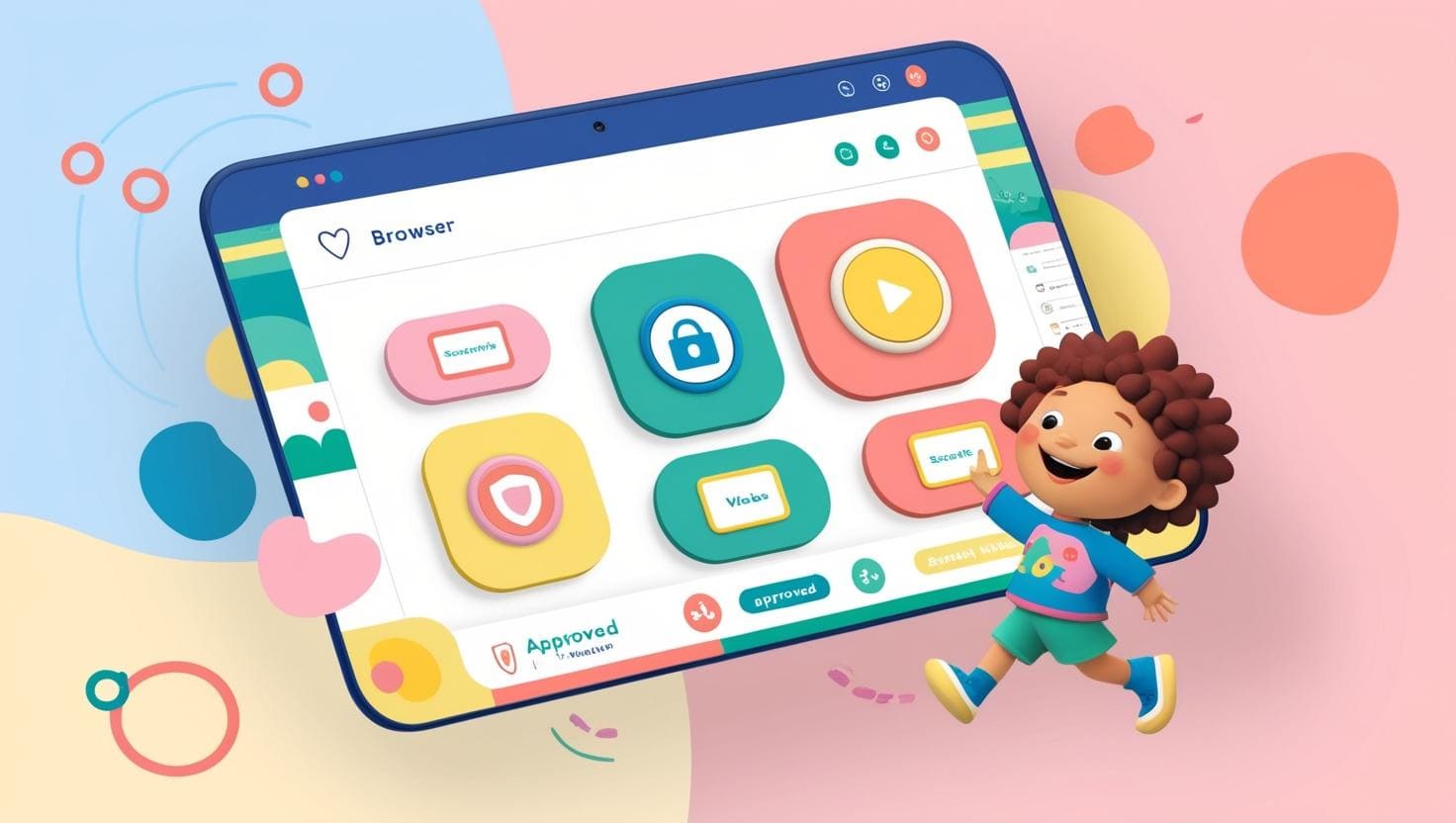
- Non-identifiable device and usage information for functionality
- Basic parental control information like approved site lists or time limits
- Account settings and preferences
They avoid collecting or storing sensitive data like precise location or browsing history. This compliance not only keeps kids safe but also provides parents with peace of mind, knowing their child's privacy isn't being compromised.
How Kid-Safe Browsers Protect Children's Data and Privacy
Kid-safe browsers are built with privacy-first principles in mind. They go far beyond standard browsers to protect kids' online data by applying multiple layers of security. Here's how they do it:
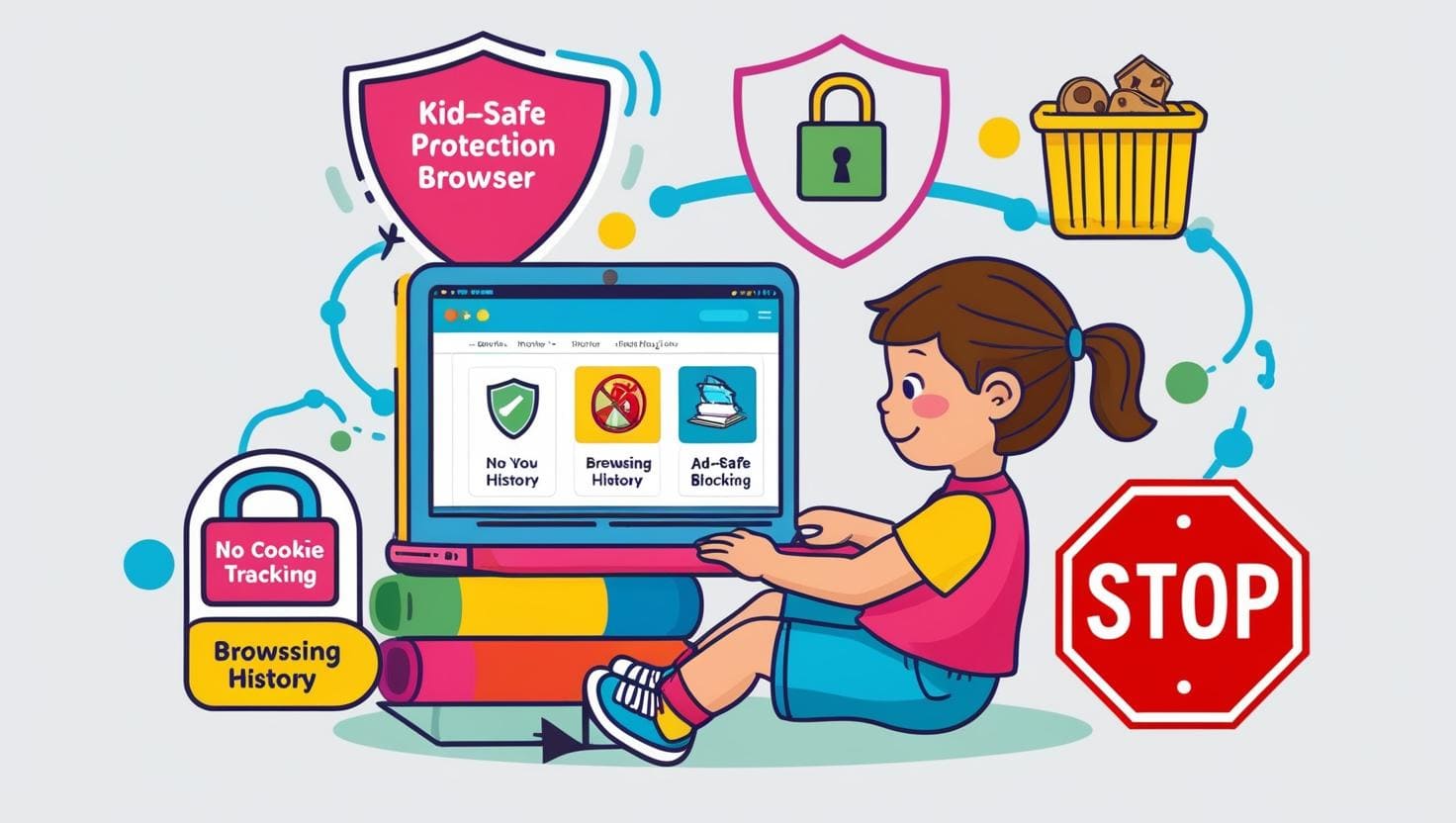
- Anonymizing browsing history: These browsers don’t store or track browsing activity, ensuring kids’ online behavior isn’t used to build profiles.
- No cookie tracking: Unlike regular browsers, they block third-party cookies that track users across websites. This prevents targeted ads and unnecessary data collection.
- No personal information storage or sharing: Kid-safe browsers avoid storing sensitive data like names, locations, or login credentials, ensuring there’s nothing to share or expose in a breach.
- Ad-blocking: They effectively block invasive ads, especially those that might use tracking pixels or collect information. Some go further by whitelisting only kid-friendly, ad-free sites.
- Automatic browsing history deletion: To ensure no digital footprints are left behind, many kid-safe browsers automatically delete browsing history after each session.
These features make safe browsers indispensable for parents who want to protect kids online acts and prioritize their child's privacy without sacrificing a safe and enjoyable browsing experience.
Now that we've learned what exactly kid-safe browsers are and how they work, let's shift the discussion to identifying the best one for your needs.



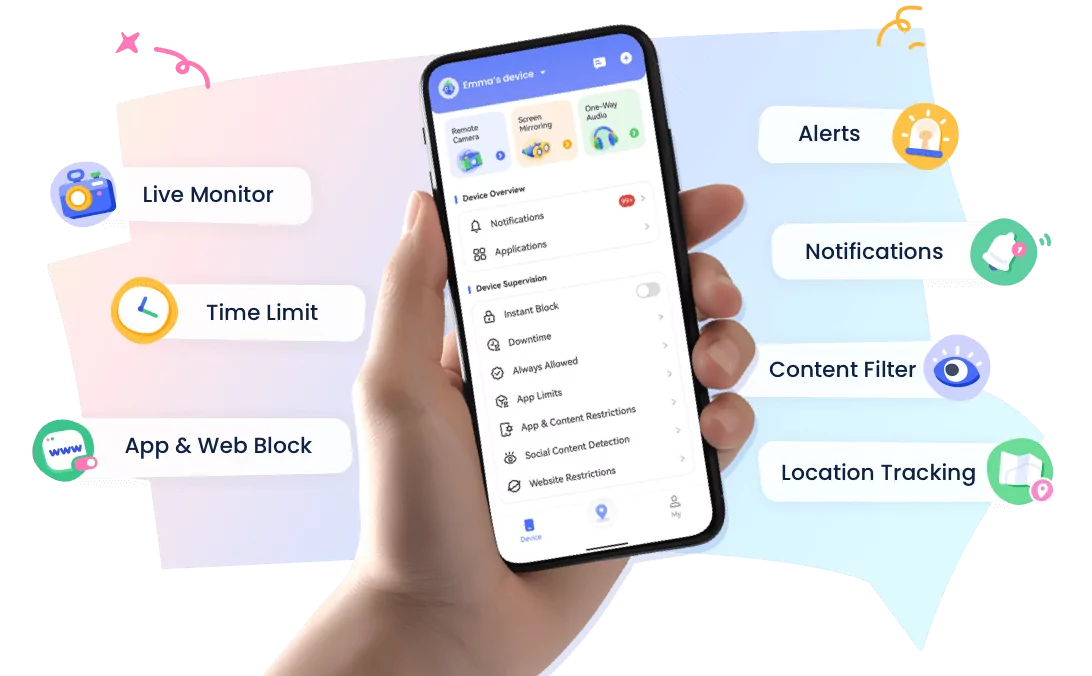
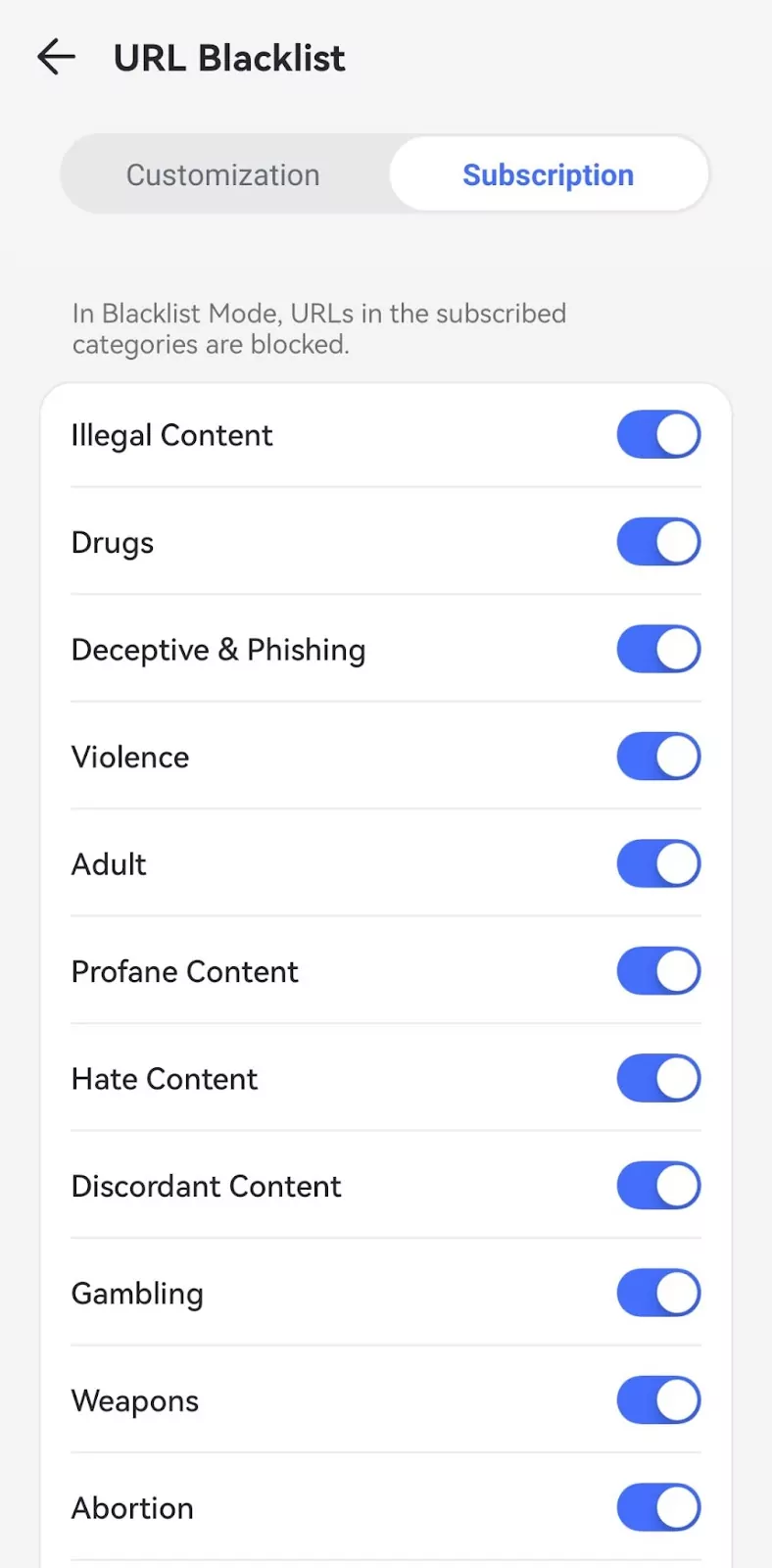
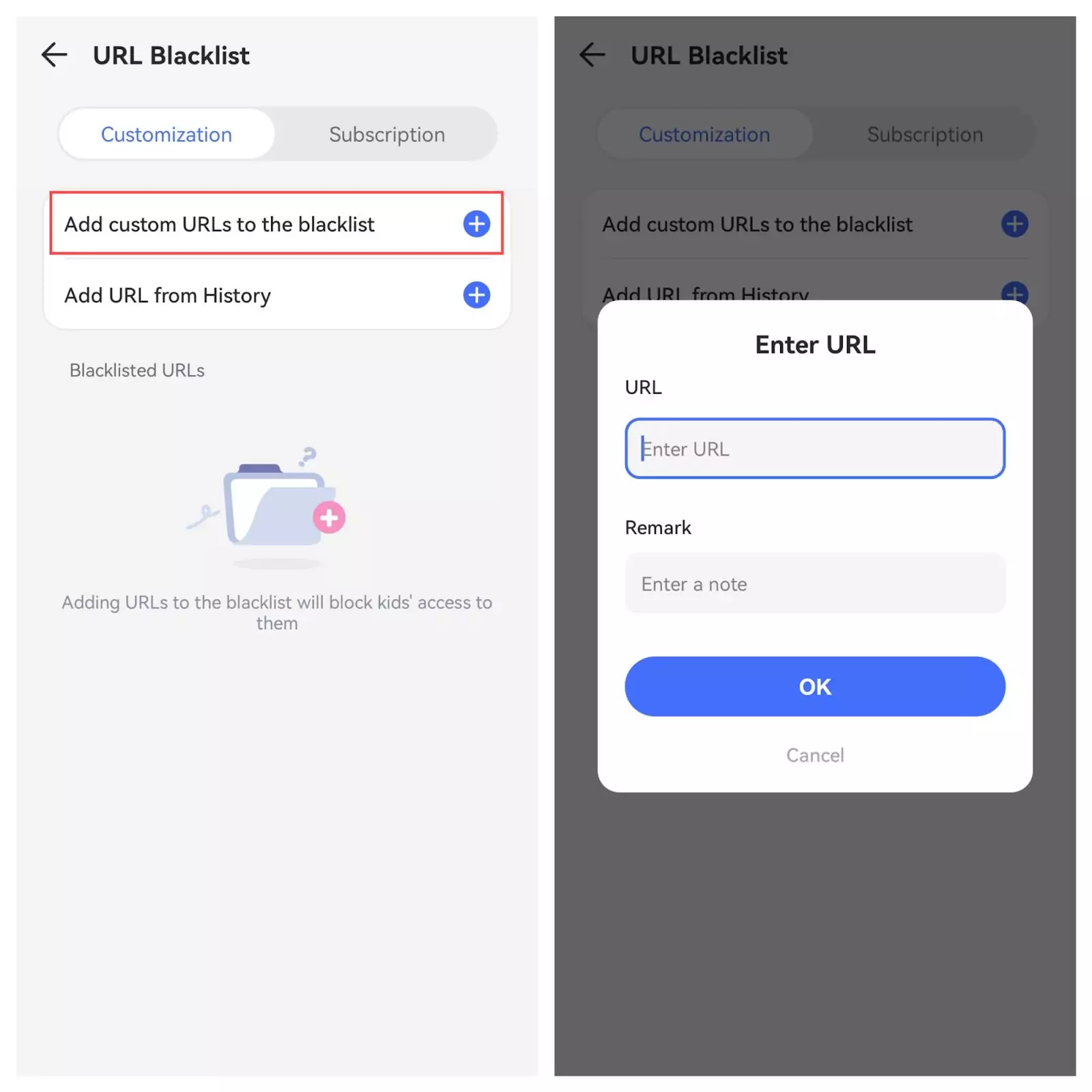
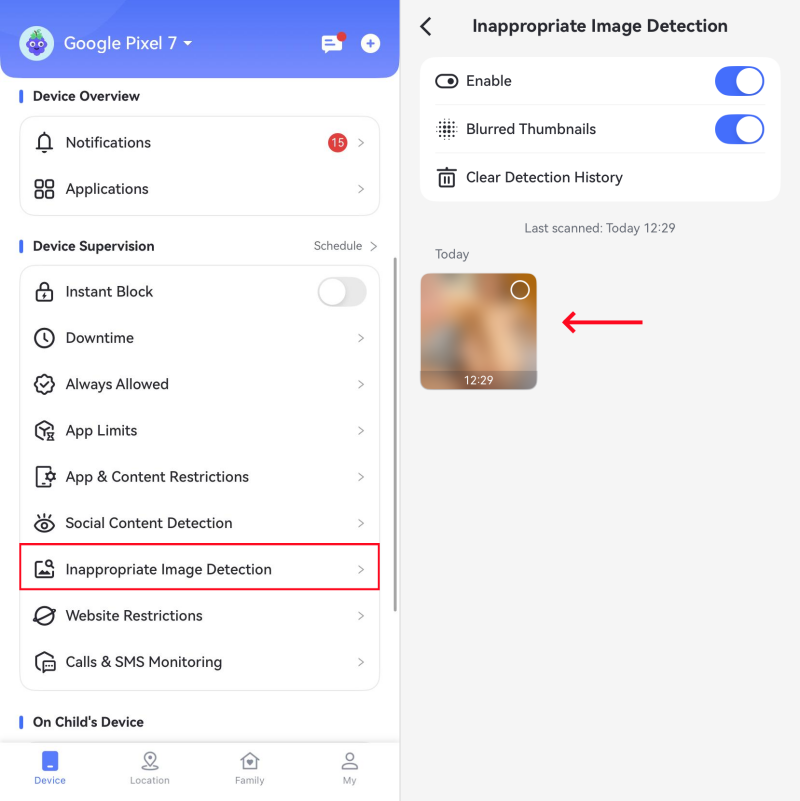









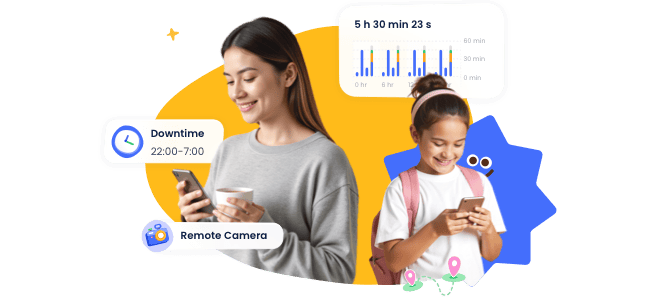
Leave a Reply.